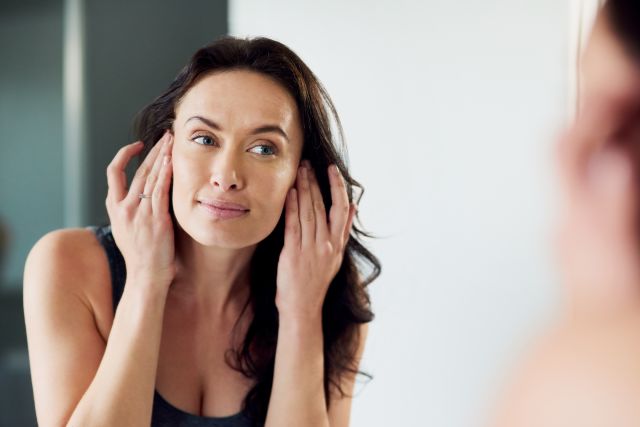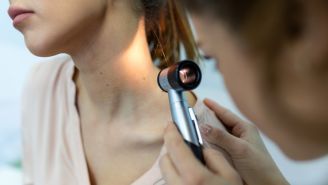Your 20s
This is a time of subtle changes. In your 20s, expression lines may begin to show as your skin's collagen and elastin start to break down. Photo damage from sun exposure may also start to appear. "Even if signs of aging are not prominent, it's important to take the steps to protect your skin," advises Debra Jaliman, MD, author of Skin Rules: Trade Secrets from a Top New York Dermatologist. Key tools include antioxidant creams, scrubs, microdermabrasion, antioxidant or glycolic peels, and daily sunscreen -- "even if you're not sunbathing," warns Hayes B. Gladstone, MD, of the Berman Gladstone Skin Institute.
Always consult a doctor before trying any treatments. Find top doctors in your local health network with this simple tool -- and get better care.
Your 30s
Though your skin may still be light and luminous, fine lines may be evident around your eyes and forehead, and expression lines can be more prominent. "The best thing you can do for your skin is to moisturize with a broad-spectrum sun protectant factor (SPF) of at least 30," Jaliman says. For emerging crow's feet and frown lines, botulinum toxin (a drug used to paralyze the facial muscles) may be an option. Non-ablative lasers can be used to give the skin a glow or to soften fine lines. Broken blood vessels can also be zapped away by laser treatments.
Your 40s
This is the decade when skin begins to show signs of sun damage and aging, especially if you were exposed to unprotected UV radiation when you were younger. Freckles and dark pigments in your skin may be more noticeable, while pores, age spots, and oil glands are more prominent. Jaliman says using products with retinol as a key ingredient is crucial to help reduce fine lines and improve your skin's texture. Other treatments to consider include photofacials (also called IPL or intense light therapy) and fractional laser treatments. IPL may help even out your skin color, and fractional laser treatments are designed to even your skin's color and texture. For smile lines and marionette lines under the mouth, collagen stimulants (or dermal fillers) are popular. Gladstone points out that sagging eyelids and under-eye bags also appear at this time, causing some women to start thinking about surgical procedures.
Your 50s
When you hit your 50s, the changes in your skin may be more dramatic. Muscles, fat, collagen, and bone tissue start to shrink, making wrinkles more noticeable. If you smoked or have excessive sun damage, wrinkling can be even more prominent. Age spots may also become more numerous all over the body, including your hands. To help with wrinkling and signs of aging, Jaliman recommends that you continue to use retinol products, as in your 40s. Lasers can be used to even skin color and treat red and brown spots, uneven texture, and enlarged pores. Many women also opt for skin tightening with Thermage CPT radio frequency to help sagging skin. Over-the-counter serums and moisturizers that contain peptides can give your skin a fuller look when used daily.
Your 60s and Beyond
Once you reach your golden years, your skin may look duller because dead skin won't shed as quickly as it did when you were younger, making exfoliation important. Broken blood vessels may appear on the face, and age spots may appear around the hair line and neck. Elastin and collagen continue to degrade, and skin cells may not stay plump with moisture as well as they used to. Photo aging caused by sun exposure continues to increase. "You can help reverse signs of photo aging by choosing a product that not only protects against sun exposure, but also repairs the skin," Jaliman says. She recommends sunscreens that use "DNA repair technology" to target existing sun damage and resist future sun damage. Skin can be tightened with Thermage CPT radio frequency. For broken blood vessels and brown spots, consider a series of laser treatments. To give your face a long-lasting, fuller look, injectable collagen stimulants are an option.






